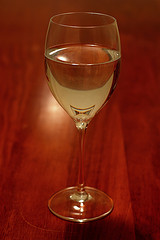A glass a day won't keep illness at bay
 If you think a glass of wine in the evening is good for your heart, think again. The long held belief that moderate drinking reduces risk of a heart attack is based on flawed data and is most likely wrong, according to a new study released on Thursday.
If you think a glass of wine in the evening is good for your heart, think again. The long held belief that moderate drinking reduces risk of a heart attack is based on flawed data and is most likely wrong, according to a new study released on Thursday.A couple of glasses of wine aren't going to hurt, the study found, but they aren't going to help much either. Heavy drinking, of course, is unquestionably bad.
"Our results suggest that light drinking is a sign of good health, and not necessarily its cause," said epidemiologist Kaye M. Fillmore of the University of California, San Francisco School of Nursing.
"No one should recommend drinking," said Dr Michael Criqui of UC San Diego, who was not involved in the study.
Although he thinks Fillmore underestimates the potential benefits of alcohol, he cautions that many people use such a recommendation as "an excuse to drink to excess. It's a very dangerous recommendation."
The new findings, published online in the journal Addiction Research and Theory, are an outgrowth of ideas first proposed 15 years ago by Dr A.G. Shaper of the Royal Free Hospital School of Medicine in London.
In his studies on heart disease and death, Shaper observed that many people who abstained from alcohol did so because of advancing age, serious illness or the use of drugs whose effects were altered by alcohol.
He has warned since then that counting such people as abstainers in alcohol studies would bias the results because their increased likelihood of disease and death was unrelated to the fact that they didn't drink.
But his has been a voice in the wilderness.
The idea that a couple of drinks are beneficial "Is such an appealing hypothesis" that few have taken him seriously, he said. "It's a lovely story, an appealing story. Doctors like it, patients like it everybody likes it."
The paper by Fillmore and an international team of colleagues "is the first time anybody has had a good, critical look at all the evidence",he added.
Fillmore's team identified 54 papers in the literature that examined the health effects of drinking. They found that the vast majority of the papers included significant numbers of people who had recently quit drinking- for whatever reason-among the group who abstained from alcohol.
Only seven of the studies had long-term abstainers in that group-people who had never consumed alcohol or who had stopped drinking years earlier for reasons unrelated to their current health.
All seven of those studies showed no benefit from moderate drinking.
Fillmore cautioned that the study had not totally disproved the notion that light drinking was good for health, but "it reopens the debate about this matter".
Criqui agreed that more studies were needed, but argued that the gold standard for reaching a decision-a blinded, randomised clinical trial-was out of the question. it would be difficult or impossible ethically to randomise patients for alcohol use, he said, and the study would not be blind because participants would readily recognise the booze.
So physicians have to deduce the answers from epidemiological studies, "which are fraught with errors", Criqui said.
He noted there was some biological evidence to support a beneficial effect from light drinking.
His own studies and those of others show that light drinking raises levels of high- density lipoprotein, the so-called good cholesterol.
There may be some value to the evening glass of wine, he said, "but it is less than previously believed", and he doesn't recommend it.


0 Comments:
Post a Comment
Links to this post:
Create a Link
<< Home